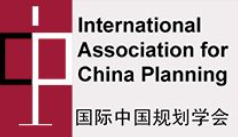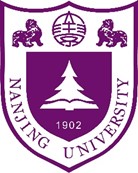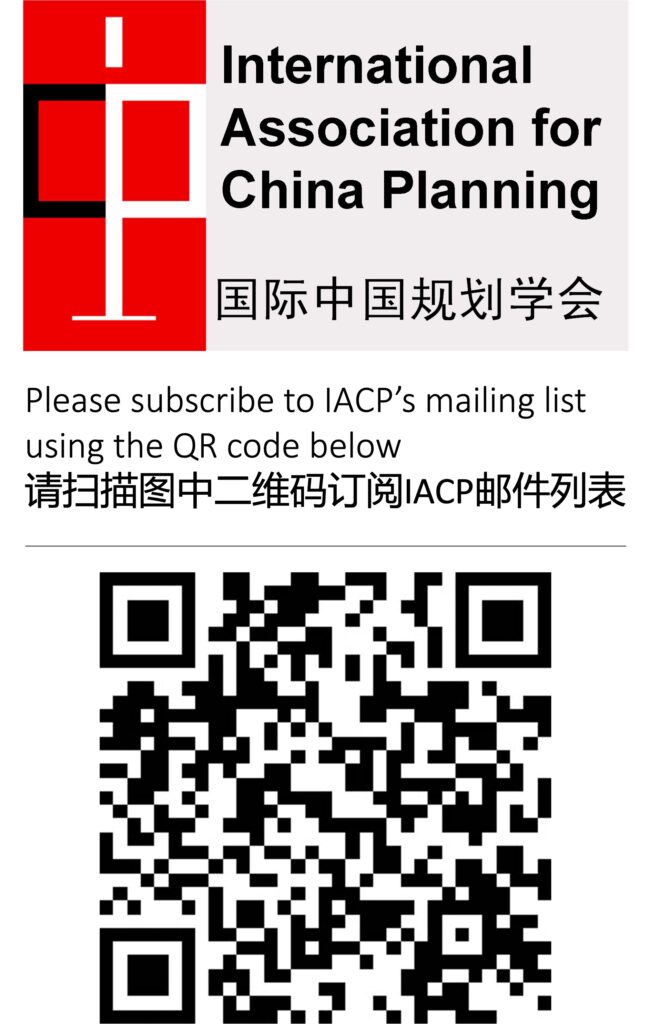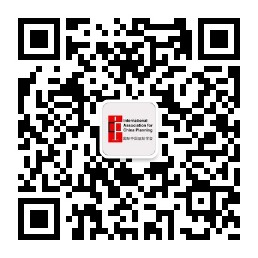Conference Theme:
Territorial Spatial Planning in the New Era of Globalization and Regionalization
The 15th International Association for China Planning (IACP) Conference
Organized by
International Association for China Planning
Nanjing University, China


Conference Theme
The Covid-19 pandemic has had a profound impact on human production and lifestyle, and has had a dramatic impact on the globalization process dominated by neoliberal values since the 1970s. Globalization based on the flow of information, capital and technology will not come to an end, but the dominant values, dynamics, and governance structure of globalization will be reshaped. We are entering a new era of globalization. China has been an active participant in economic globalization since its reform and opening up. In the past decade, China has put forward the initiative of building a community with a shared future for mankind and the Belt and Road initiative, which have received wide recognition and positive response from the international community. Faced with the external environment of rising trade protectionism, post-epidemic world economic downturn and shrinking international market demand, China has promptly adjusted its development strategy and planned a new “dual circulation” development pattern in which the domestic cycle plays a leading role and the domestic and international cycles promote each other.
In response to the development trend of new globalization, China’s territorial development strategy is also being reconstructed from a one-way regional opening pattern, which was mainly oriented to the markets of developed countries, to a comprehensive opening and development pattern that is oriented to developed countries, to the broader “Belt and Road” region, and to neighboring countries and regions. To this end, the central government has laid out 19 national new zones and approved four batches of 18 free trade zones in the Beijing, Tianjin and Hebei region, the Yangtze River Delta, the Pearl River Delta, and the vast inland areas to create regional growth poles for national economic development and opening to the outside world. At the same time, more attention has been paid to improving the level of integrated development of city clusters and metropolitan areas. To build world-class mega-regions, Chinese governments have introduced the Beijing-Tianjin-Hebei Synergistic Development Plan, the Guangdong-Hong Kong-Macao Greater Bay Area Development Plan, the Yangtze River Delta Regional Integrated Development Plan and the Chengdu-Chongqing Region Twin Cities Economic Circle Construction Plan.
Territorial spatial planning in the context of new globalization and regionalization is the theme of this annual conference. We cordially invite urban planning scholars and practitioners, engineers, and government officials in China and around the world to the conference to have academic exchanges, analyze the trend of new globalization and new regionalization, share the advanced concepts and outstanding experiences of territorial spatial planning, and discuss the challenges and opportunities of spatial planning in China.
The conference tracks include:
- New trends in Globalization and Regional Development
- Territorial Spatial Planning and Urban-Rural Integration
- Regional Integration and Metropolitan Planning Practices
- Smart Cities and New Technologies for Urban Planning & Design
- Land Use and Economic Development Policies
- Transportation and Infrastructure Planning
- Housing and Community Development
- Urban Environmental Planning
- Urban Health and Public Safety Planning
- Urban and Landscape Design
- Urban Renewal and Historical & Cultural Preservation
- Special Issues of Academic Journals
- Others
Abstract Submission
Please submit your paper abstract of 200-300 words, in English only*, to EasyChair by March 25, 2021. Please refer to this template for formatting. Paper abstracts are submitted via EasyChair. You will need to register as an author with EasyChair to make a submission.
Please select ONE track and submit your abstract ONLY to that track.
When you submit, please enter the names and contact information of all coauthors. Otherwise, their names will not appear in the conference program.
If you would like to propose a pre-organized session, please ask your session participants to submit their abstracts as regular abstract submissions. The organizer of the pre-organized session should send a pre-organized session proposal to IACP2021@hotmail.com before May 01. The proposal should include the theme of the session and the information of each individual paper (abstract ID, title, and authors) that will be presented in the session. The subject of the email should be formatted as “Pre-organized session proposal: proposal title”.
We will issue a separate Call for Roundtables later.
Information about the three special issues can be found at our website. If your abstract is not suitable for a special issue, we may still invite you to present your paper at the conference.
All abstracts will be peer-reviewed by the Technical Committee.
Important Dates
Deadline for abstract submission: March 25, 2021
Notification of abstract acceptance: April 15, 2021
Deadline for advance registration: May 15, 2021
Deadline for student award and travel grant applications: May 15, 2021
Conference: September 11-12, 2021
Organization: Online meetings.
Conference Organizing Committee
IACP
Chair: Hongwei Dong (California State University, Fresno)
Vice Chairs: Siqi Zheng (Massachusetts Institute of Technology)
Jige Quan (Seoul National University)
Junfeng Jiao (The University of Texas at Austin)
Contact: iacp.conf@gmail.com
Nanjing University
Chair: Xiaolong Luo
Vice Chairs: Guofang Zhai, and Tao Yu
Executive committee: Jianxi Feng, Zhongyu He, Guangliang Xi, Zongni Gu, Jie Sun, and Hao Chen
Contact: iacpconference2021@126.com
Supporting Institutes
Committee of Urban-Rural Governance & Policy Research, UPSC
* Conference language: The working language for the IACP conference is English.

 Scan the QR code below to connect with IACP official WeChat account.
Scan the QR code below to connect with IACP official WeChat account.
